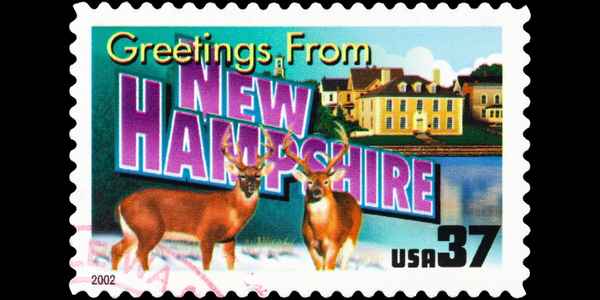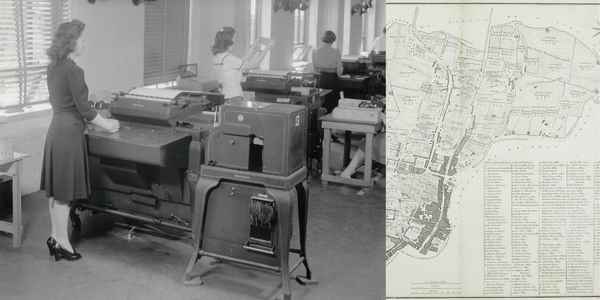Your opinion on whether Otis is an African American first name is probably based on the people you know or have heard of.
I don’t know about you, but the glorious voice of Otis Redding is what comes to my mind.
But I wanted to take a more data-based approach to figure this out. That’s a challenge because the Social Security Administration doesn’t include ethnicity when it publishes statistics on first names.
So, I used some alternative sources to look at numbers in current times and historically.
Is Otis An African American First Name Currently?
Several online archives have collected thousands of high school yearbooks from the early 1900s up to 2016.
I used Ancestry.com for my research. First, I ran name searches on three southern states with a significant black population.
To keep this to recent numbers, I ran searches on the ten years from 2006 to 2016.
The table below is the summary of my review. The column headed “Otis” was the total number of kids with the name that I found across the schools with uploaded yearbooks.
| State | Schools | “Otis” | Black % |
| Georgia | 17 | 18 | 83% |
| Louisiana | 5 | 5 | 80% |
| Mississippi | 5 | 5 | 100% |
Every student was male.
Based on these yearbooks, Jerome isn’t an exclusively African American name in recent years. However, the black percentage is very high.
My conclusion is that Otis is a typically African American male name in the 21st century.
What about New Hampshire?

To balance this survey, I also looked at a state with a low black population.
I spent one year in Middle School in New Hampshire. There was one other black kid in the 8th grade.
So, I searched the New Hampshire yearbooks from 2006 to 2016 for anyone named Otis.
There was one white student named Otis in the yearbooks in that decade. There were no black students with the name in the search results.
Why were there so few schools in this survey?
Of course, there are more than twelve schools in Louisiana (there are 558 to be exact). But many schools don’t have yearbooks available online.
The second column in the table shows the number of schools that came up in the results when I searched for the name Otis.
It’s also possible that a school has a yearbook online but has nobody by the name of Otis. That means the school doesn’t get counted in this survey.
The challenge of using high school photos
If you’ve looked at historic census records in the U.S., you’ll know that ethnicity is one of the questions that people are asked.
This means that the census archives can be searched by ethnicity as well as specific names. However, I could only search the high school yearbooks by student names and school locations.
So, how did I identify African Americans from people of other heritage?
Well, the recent high school yearbooks have photographs of the students. I did it by eye.
I’m not going to be right with every pick. So, treat these numbers as an estimate.
Otis Was Almost 50:50 In The 1960s and Early 1970s

A research study used mortgage applications from 2007 to identify the breakdown of first names by ethnicity.
We can guess that most of the applicants were aged from thirty to fifty. So, the numbers represent people born in the 1960s and early 1970s.
There were 131 people named Otis who applied for a mortgage. The ethnic breakdown was very interesting (I rounded the numbers):
- White: 51%
- Black: 47%
- Hispanic: 1%
- Asian & Pacific Island: 1%
It’s close to breaking 50:50 between white and black.
So, the name was less likely to be given to a black child from those times than in recent years.
I conclude that Otis was both a white and black name in the 1960s and 1970s.
Was Otis A Black Name In The 19th And Early 20th Century?
To review whether Otis was a popular first name in the 19th and early 20th centuries, I looked at several federal censuses.
The 1870 federal census was the first census taken after the emancipation of slaves. This was the first census that counted all African Americans.
There were 6,323 people in the 1870 census named Otis. The census takers marked 98 as black.
They also marked 31 as mixed (the term was “mulatto” then).
When I’m researching African Americans in the 1870 census, I always include the two categories. The census takers were not always correct in how they categorized non-white residents.
Regardless, we can say that the black percentage was somewhere from 1.6% to 2%.
The mixed category was dropped in the 1900 census. By now, the black percentage had grown to 11%.
The 1930 census brought in extra categories for non-white residents that seemingly confused the census takers.

So, I’ll skip that census and jump to the 1940 version where there was one black category.
By 1940, the black percentage had more than doubled to 25%.
My conclusion is that Otis was not a common black name in the late 19th century but grew in popularity in the early 20th century.
Other Names
I’ve also looked at another four-letter name starting with “O”.
Check out our article on whether Omar is a typically African American first name.